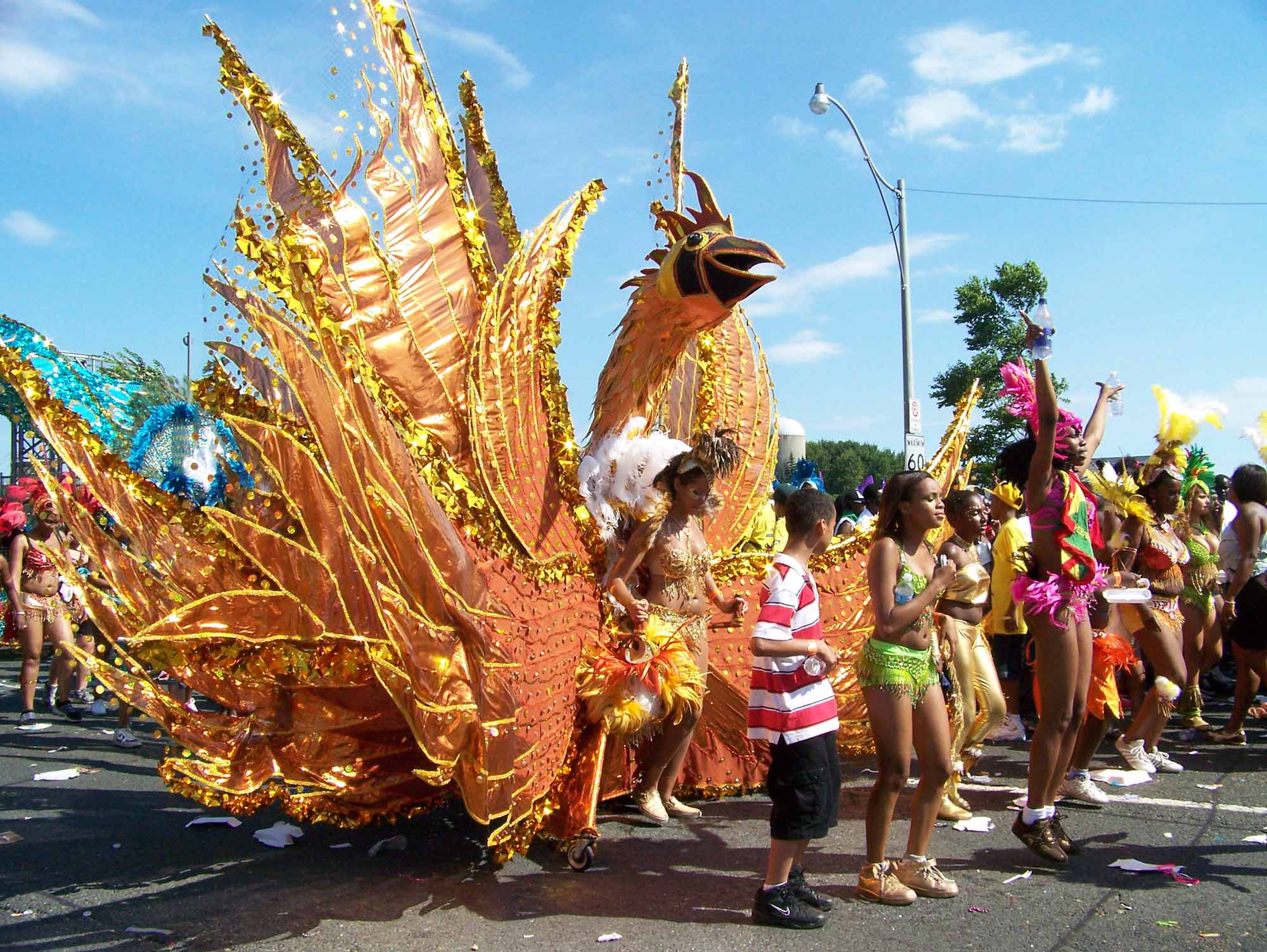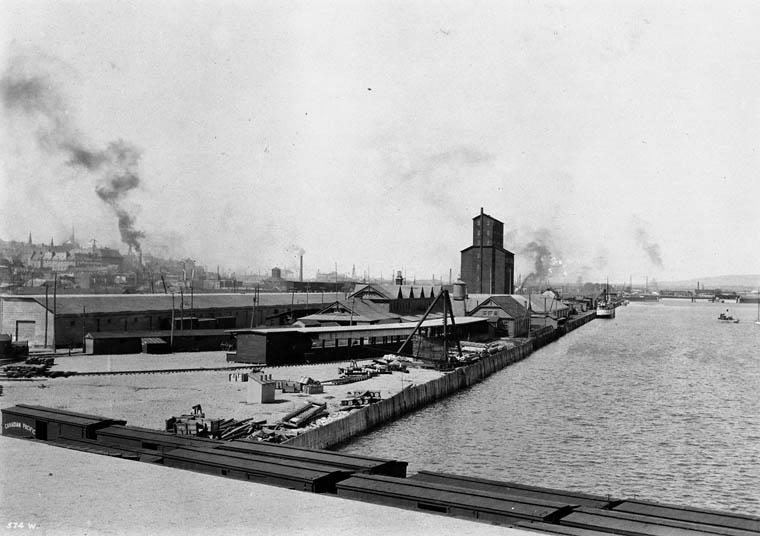Donald Willard Moore, CM, OOnt, Canadian Barbadian community leader, civil rights activist, advocate (born 2 November 1891 in St. Michael parish, Barbados; died 22 August 1994 in Toronto, ON). Donald Moore had a lifelong career in fighting racial injustices and racist immigration policies. (See Anti-Black Racism in Canada.) His efforts alongside his community helped bring about the West Indian Domestic Scheme. He also sought to increase economic opportunities for Black and Caribbean communities.

Early Life, Education and Career
Donald Moore was born in Barbados. His mother was Ruth Elizabeth Moore and his father was Charles Alexander Moore. Charles Alexander was a cabinetmaker, in addition to being a member of the Barbados Harbour Police Force. Donald Moore was trained as a tailor in his native Barbados.
At the age of 21, Moore emigrated first to New York and then to Montreal. In Montreal, Moore found a job as a sleeping car porter on the Canadian Pacific Railway. As sleeping car porters, Black men could travel across Canada and were able to experience different parts of the country. In 1913, Moore’s job as a sleeping car porter brought him to Toronto. Once in Toronto and after saving the necessary amount, Moore enrolled at the Dominion Business College. There, Moore completed the required courses needed to register in the dentistry program at Dalhousie University in Halifax in 1918.
After studying at Dalhousie for a year, Moore fell ill with tuberculosis. He spent 18 months in a hospital recovering from the infectious disease. With his hopes of becoming a dentist and his formal education coming to a close, Moore moved back to Toronto.
In 1920, Moore started working at Occidental Cleaners and Dyers. He later purchased the business and operated it for 40 years. Moore’s business became a gathering place for the Caribbean community, the Toronto branch of the Universal Negro Improvement Association (UNIA), the West Indian Progressive Association and the West Indian Trading Association.
Activism and Community Work
In 1928, Donald Moore met pan-Africanist, activist and founder and president of the UNIA, Marcus Garvey. Garvey’s views, principles and policies greatly influenced Moore. He became a founding member of the UNIA’s Toronto chapter. Moore also was a founding member of the West Indian Trading Company and the first Black credit union, founded in 1944.
In 1951, Donald Moore founded the Negro Citizenship Association (NCA), a civil rights, social and humanitarian organization. He was its first director. The NCA sought to challenge immigration policies that prevented Black Caribbean people from coming to Canada. The NCA also wanted to end the incarceration of migrants risking deportation. (See Immigration Detention in Canada.)
Canada had very discriminatory immigration policies up until the 1960s. Prior to that, the Immigration Act had two categories of “British subjects” within the Commonwealth: “Blacks” and “whites.” Black people from the Caribbean, Africa and Southeast Asia could not come to Canada. According to Canadian authorities, Black people from the region could not adjust to Canada’s harsh climate nor could they assimilate into Canadian society. (See Racial Segregation of Black People in Canada.) Donald Moore was determined to change these restrictive immigration policies for Black people seeking to come to Canada. He inspired those around him to join forces and fight for their rights.
On 27 April 1954, Moore and his friend Bromley Armstrong led 34 representatives from the NCA, unions, labour councils and other community organizations to Ottawa. There, they met with and presented a brief to Minister of Citizenship and Immigration Walter Harris about Canada’s discriminatory immigration laws. The brief also outlined the impact of these discriminatory laws and made recommendations for change. Thanks to this initiative, the Canadian government eventually adopted the West Indian Domestic Scheme. This new policy allowed Black women to come to work in Canada as domestics.” By 1955, Moore’s work with the Jamaican government, Barbadian government and Canadian government allowed Black domestic workers to also gain their permanent residency after one year of work in Canada.
Donavalon Centre
In 1956, Donald Moore and two other NCA members bought a 12-room home on Cecil Street, in Toronto. They converted it into a recreation centre for the Caribbean community — the Donavalon Centre. It became home to the UNIA Toronto branch and the Toronto Negro Citizenship Association. Also, the Centre offered many activities for the Caribbean community, including teas and programs on Sundays. There was even a publication for its members every quarter and insurance services. In 2000, the City of Toronto’s Cultural Division erected a plaque at 20 Cecil Street to remember and celebrate Donald Moore’s important contributions to Black Caribbean communities across the city.
Family
Donald Moore was married to his wife, Kay, for almost 30 years. They had four children: a biological son named Desmond Moore, and three stepchildren: Karlene, Lawson and Betty.
Later Life
Donald Moore continued to operate his dry-cleaning business in different locations across Toronto until he retired in 1975. Donald Moore also retired from public life as a community leader and activist in the same year. Instead, Moore turned his attention to his love of photography and gardening. He also created and cultivated a beautifully-landscaped garden and greenhouse on his two-acre-lot at Drewry Ave. There, he lived in a home he built for himself. Moore was a member of the North York Horticultural Society and won an award for his skill and talent in gardening.
On 22 August 1994, Moore passed away in his sleep at the age of 102. He is buried at Sanctuary Park Cemetery in Etobicoke, Ontario.
Legacy, Honours and Awards
The legacy that Donald Moore left behind is still remembered, cherished and felt today. He was a recipient of many honours and awards.
- City of Toronto Award of Merit (1982)
- Harry Jerome Award of Merit (1984)
- Ontario Bicentennial Medal (1984)
- Barbados Service Medal (1986)
- Ontario Ministry of Citizenship award (1987)
- The Order of Ontario (1988)
- The Order of Canada (1989)
- Donald Willard Moore Scholarship fund (1991)
Since 2000, a City of Toronto plaque at 20 Cecil Street has honoured his contribution. A Barbadian Canadian community organization that helps immigrants in Canada also bears his name.

 Share on Facebook
Share on Facebook Share on X
Share on X Share by Email
Share by Email Share on Google Classroom
Share on Google Classroom


